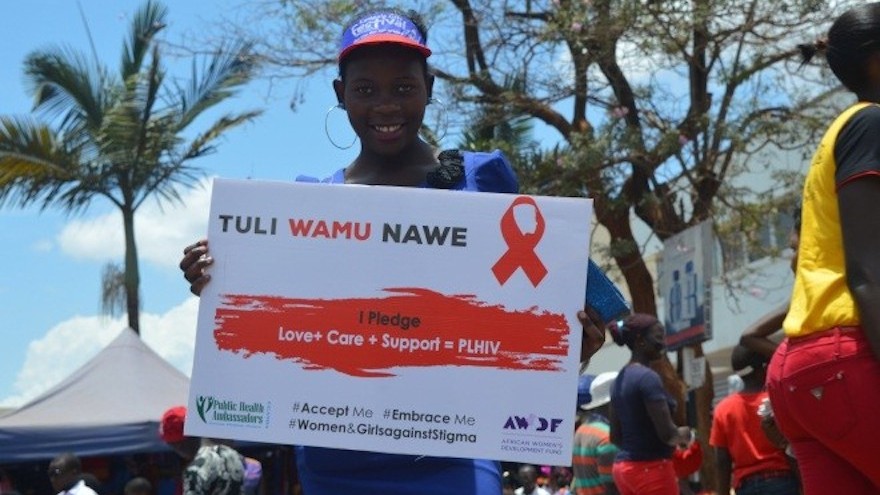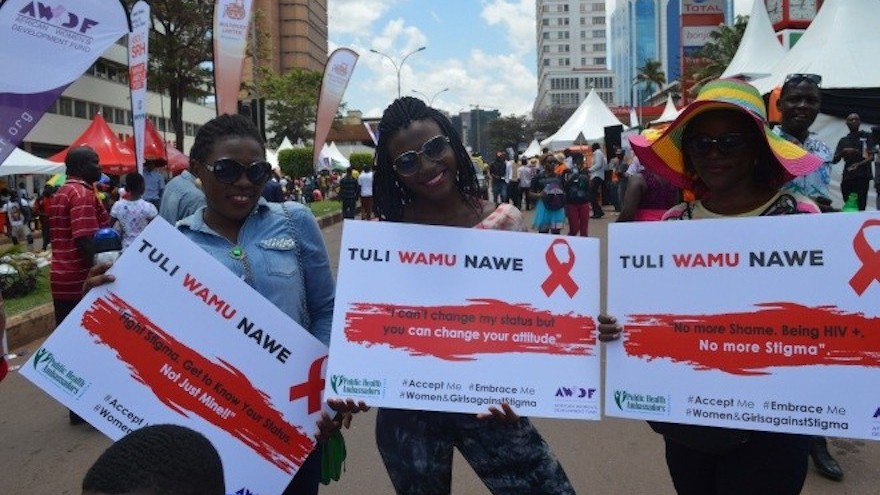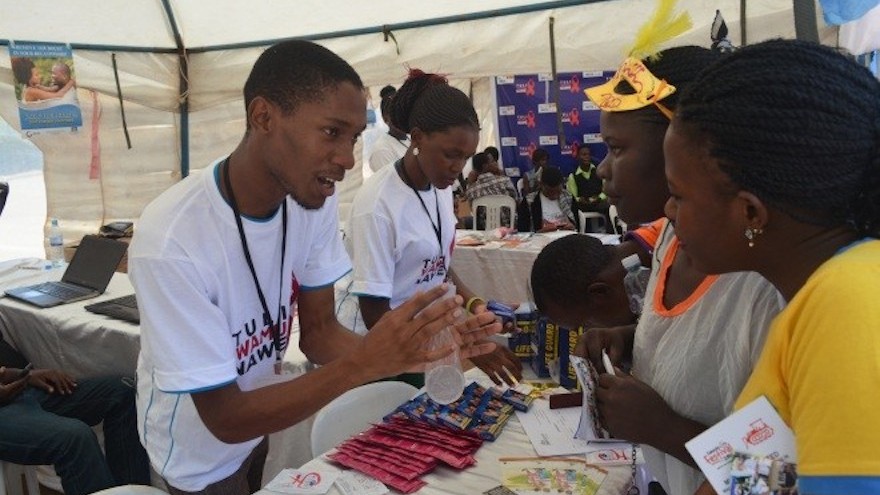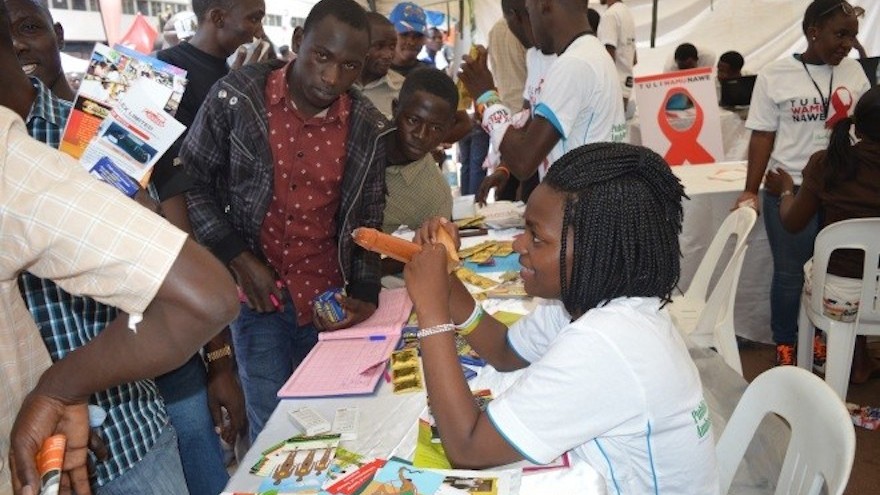Around 36 million people are living with HIV worldwide, according to the World Health Organisation’s latest statistics. The virus can be found across all countries and regions, but it remains most prevalent in Africa, Sub-Saharan Africa in particular. As governments across the globe implement prevention and control strategies to rid the world of the scourge, grassroots social interventions like Segawa Patrick’s Public Health Ambassadors Uganda (PHAU) are using the creative arts to fight the stigma and educate the youth on sexual health.
Patrick, founder and programme manager at PHAU, has been described as a proactive and self-motivated Sexual and Reproductive Health and Rights (SRHR) advocate and Public Health practitioner. The programme he developed draws from education, art, drama, dance, and music to raise awareness in Uganda. The main focus of the programme is to remove the stigma associated with being HIV-positive.
“Most people assume that someone with AIDS is immoral. They do not realise that there are other ways of transmission. They simply believe that if someone has AIDS, they must have acquired it through immoral behaviour. They associate you with criminals and hence discriminate against you,” wrote Patrick.
The non-profit organisation was founded in 2011 as a Music, Dance and Drama club at International Health Sciences University (IHSU). It expanded into an outreach entity when it became evident that the creative arts had a positive impact on the youth involved. Through an “edutainment”, informative and performance arts approach such as plays, skits, poems, dance narratives, and flash mobs PHAU seeks to increase awareness, sensitization and adoption of safe adolescent sexual and reproductive health behaviours.
PHAU’s Tuli Wamu Nawe Campaign, under the hashtags #AcceptMe and #EmbraceMe is its anti-HIV and AIDS Stigma project aimed at decreasing HIV and AIDS stigma and discrimination against women and girls affected by or infected with HIV/AIDS. With support from African Women’s Development Fund, PHUA plans to impact five selected communities within the Wakiso and Kampala districts by mentoring 25 women and girls, helping them set up sustainable income opportunities, and training them to sustain HIV education activities in their areas.
The stigma around HIV/AIDS often stems from a lack of information or the presence of false information without the means to properly educate oneself. With this in mind, PHAU launched RH-Connect. The project uses ICT innovations through smartphone apps to distribute reliable, accurate information on health related matters such as STI’s, HIV/AIDS, pregnancy, and contraceptives. The app features photos, videos, and a hotline service that provides health information from trained professionals by call or SMS. The app also makes the information easily accessible to the population who need it most – the youth.
According to Patrick, the app targets youth who are in danger of engaging in high-risk behaviours because they have limited information after their diagnosis.
“Young people living with HIV are continuously frustrated by the stigma and discrimination they face from their family, colleagues at school, potential employers, and the general public. Young people have limited access to HIV information and services and may engage in risk behaviours that increase their vulnerability as they are poorly informed about how to protect themselves,” adds Patrick.
Uganda has one of the highest rates of teenage pregnancy in Sub-Saharan Africa. PHAU’s “Worth The Wait” campaign is a student-based initiative designed to address the effects of teenage pregnancy and other sexual health related issues at five secondary schools in Wakiso and Kampala. Using plays, music, and drama the organisation hopes to educate the youth in a way they would find engaging.
To further engage with the masses, PHAU makes its presence felt at the annual Kampala City Festival. Held every first Sunday in October, the festival celebrates culture, unity and provides immense networking opportunities for business. This year, PHAU managed to provide free HIV testing to over 2500 people, linked 25 HIV positive people to health facilities for care, distributed over 16000 condoms, and screened 42 women for cervical cancer. Those who tested positive for cervical cancer were also linked to specialist facilities for further care.
According to Patrick, there’s still a lot of work to be done. “The current statistics depict an increase in the incidence of HIV and young people are the group most affected. According to 2011 statistics by the Ministry of Health, 37 per cent of youths are HIV-positive and HIV prevalence is higher among female youths than their male counterparts,” he says.
In the next ten years, Patrick hopes to expand PHAU into a global movement and platform for young people who are interested in making a difference. His hope is that the platform will be used to address issues surrounding reproductive health, and be a catalyst for change in ineffective health policies in countries where the population has little to no access to accurate sexual health information.










